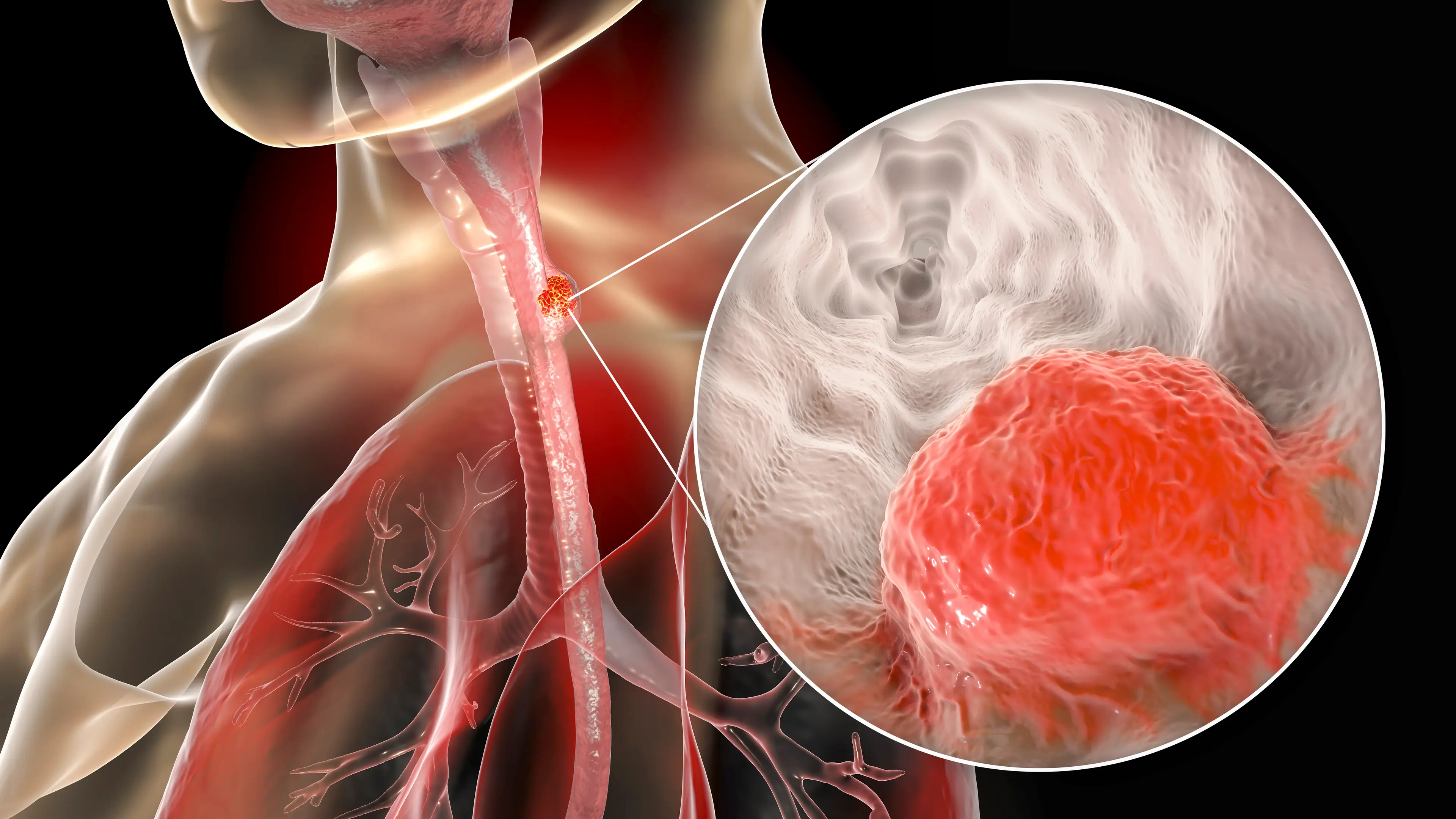
Cancer is a deeply prevalent form of illness that around one in two people will be diagnosed with at some point in their lifetime.
In younger people, some cancers are becoming more common, but getting screened for cancer only tends to be primary port-of-call when you’re past a certain age.
For Mark Sevillano Jr, his relative youth obfuscated the fact he was falling desperately ill.
The now 41-year-old from Santa Fe Spring, California, issues with swallowing weren’t picked up as potential cancer for several months.
Advert
Early in 2024, he had become a regular gym-goer and was on a healthier diet than in previous years. In 2021 he went through the end of an 11-year marriage, and the dad-of-two spent the following few years attending college for a teaching degree.

After three stressful years he felt he was back in form, but it was in 2024 that he started noticing issues with swallowing.
“I felt better and just when I started feeling better, I … couldn’t really swallow my food comfortably,” he told Today.com. “I felt like it almost would get stuck in my throat.”
He would drink a lot of water to help clear his throat, and after two months of worsening symptoms he visited a doctor who, he said, had to be pushed to order a swallow test.
Before the test day came, Sevillano visited the emergency room and soon discovered he had a mass in his throat that could be cancerous.
“I would have never imagined that I had any cancer, let alone oesophageal cancer,” he said. “I’ve never even said the word ‘oesophagus’. It was not on my radar at all.”
He continued: “I was losing a little bit of weight, but I thought it was because of my new lifestyle.”
The swallowing issues became gradually more severe in the months leading up to his diagnosis.
“I would have to literally pound my chest with my fist to help break down the pathway to allow my food to go down,” he explained “That was so odd now that I think back on it. But at the time I thought, ‘Oh, I need a little extra help to digest my food.’”
He said his primary care doctor ‘didn’t sound too concerned’ as he was young and didn’t have a family history of cancer. It was only at Sevillano’s insistence that a swallow test was booked at all.
Sevillano reflected: “He was like, ‘We’ll schedule a swallow test in the future. I’m not too worried about it,’. Looking back on it, I was like, ‘Wow, there are so many red flags.’”
He would have had to wait months for the swallow test booking to come around, but his symptoms had progressed so much that he felt compelled to go to the ER.
“I couldn’t even swallow liquid anymore,” he said “It would sit in my throat, almost like a drain that is clogged up, and it’s filling up with water. You need to unplug the drain. It felt like that.”
Following blood tests and a CT scan, he was given the grave news.
“[The doctor] said, ‘Hey, to let you know your bloodwork came back great and the next thing we’re waiting on is your scan, and I’m sure that’s going to come back great as well,’” he said.
“He said, ‘Unfortunately, we got your scan back and we found a mass in the centre of your chest, in your lower part of your oesophagus’.”
When the doctors attempted a biopsy, they struggled to pass the scope through Sevillano’s throat because the inflammation was so severe. The sample they took wasn’t large enough to determine whether the mass was cancerous.
He was scheduled for a second biopsy, but his condition deteriorated again in the interim.
“(This) is where I almost died,” he said. “My body just didn’t feel right. I started to feel light-headed, almost as if I’m going to faint.”
After experiencing convulsions and developing a pale complexion, he was taken back to the ER and diagnosed with sepsis.
“My body was shutting down, and they had to pump me with any type of antibiotics to fight the infection that was rapidly going through my bloodstream,” said Sevillano. “For the next four days, I was fighting and trying to get the infection out of my body.”

During his recovery, the second biopsy was performed and he was diagnosed with Stage 2 oesophageal cancer in June 2024.
Following an extensive treatment plan of chemotherapy and eventual surgery to remove a strawberry-sized tumour and six of his 10 inches of oesophagus – part of his upper intestine was used to replace the removed oesophagus – Sevillano has been cancer-free.
“I had my six-month check-up scan and that came out with no detection of cancer,” he said. “I went to the beach and celebrated six months of being cancer-free.”
Topics: Health
